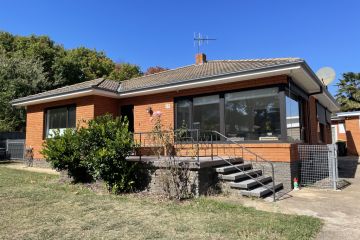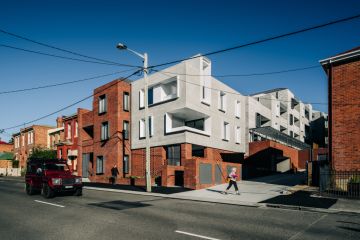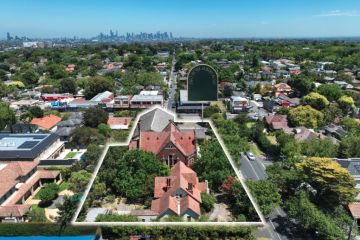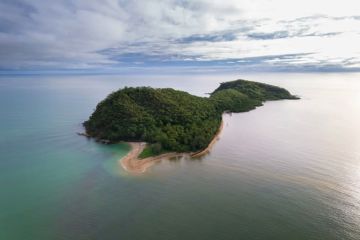'Even better than imagined': The family who sold their home to fund life on the road

In 2016, Eric and Grace Koelma felt caged by routine, obligation and the minutiae of the suburban grind.
They were two years into a 30-year mortgage on the Central Coast in NSW, owned “too much stuff” and felt the weight of the material was hindering their ability to get up and leave.
So, they got rid of it all.
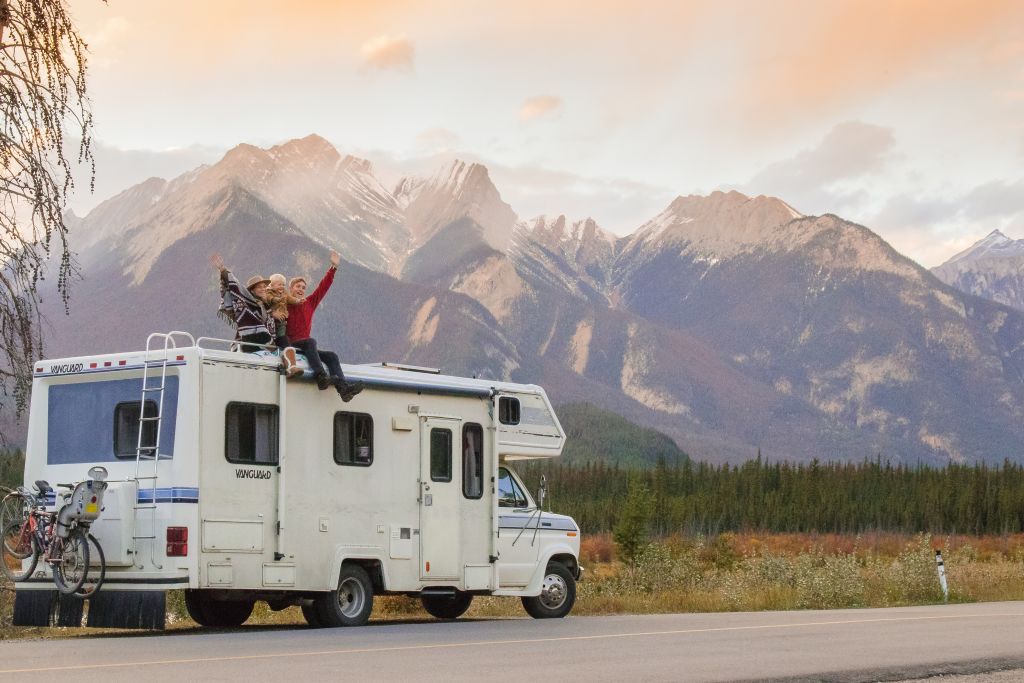
“One day, we looked at all of it, our stuff, our home and our time commitments and realised we needed to remove it all so we could work out what we prioritised and emphasise those things. So we did,” Grace says.
They sold their house, 80 per cent of their belongings and six months later – with two-year-old Leo in tow – were leaving Australia with one-way tickets to South-East Asia.
Some 18 months on, the family are exploring a little further afield, snaking their way through Canada in a fully refurbished RV.
“We came at [the van’s redesign] with almost no experience and had to learn it all on the job. One of the trickiest things was arriving in Canada knowing no one and having to work out how to renovate a vehicle without a garage or tools. We made other ‘van life’ friends early on and their advice, tools and help often saved us in the eleventh hour. We watched a lot of YouTube tutorials, made a lot of trips to the hardware store and made our fair share of mistakes,” Eric says.
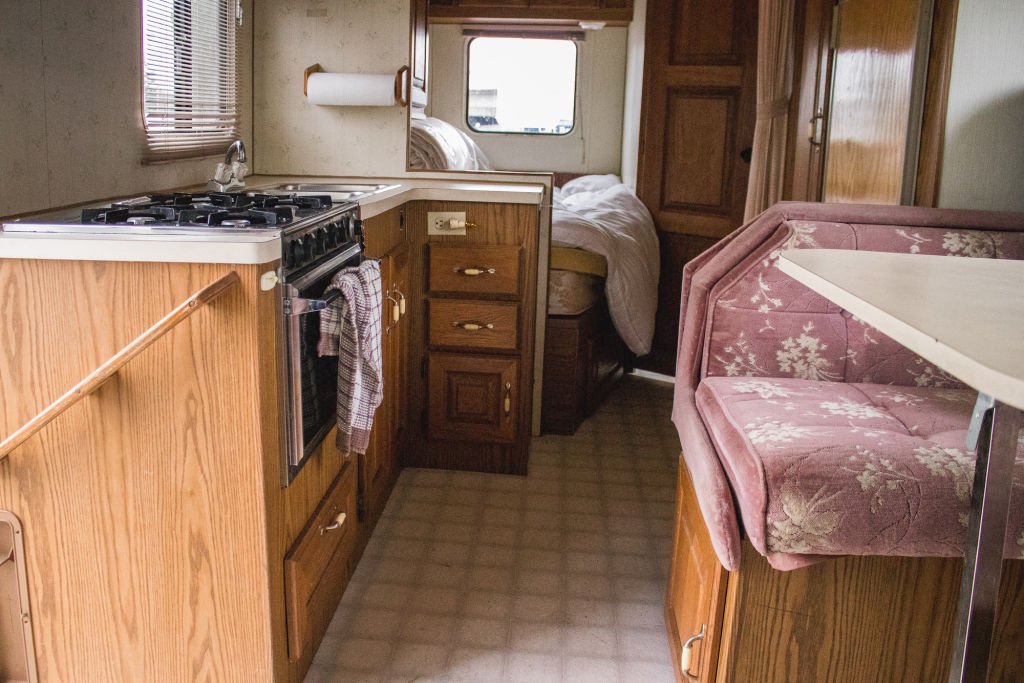
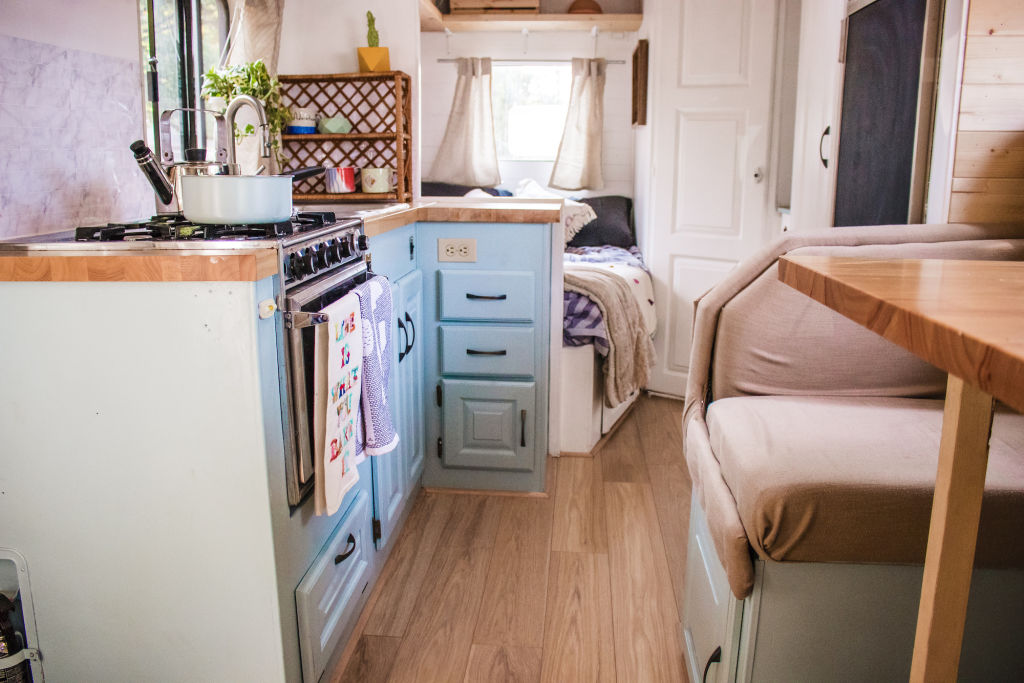
The couple say it was important to them that the vehicle was “free of black mould”, “a healthy space to live” and – given they intended for this to be their home for two years – was a “light and bright” space they would actually enjoy inhabiting.
“We researched a few different vehicles before we bought #valourthevan – a 4WD option with tent on top, and a VW Westfalia – but we felt that we needed a self-contained motorhome that could become a tiny home on wheels, not just a ‘weekend camper’. Thankfully, this was the best decision we made and even though a 24ft motorhome can be difficult to park (especially in cities), we think having the extra space and room to stand inside makes living full-time on the road so much easier,” Eric says.
- Related: Living in a 13-person share house
- Related: The couple who quit everything for a coffee van
- Related: The family living and working in a rural distillery
Their tiny, compact home has everything they need on board – a toilet, shower, oven, solar panels to charge the laptops, water and a fridge. In fact, there’s even a custom play space and bedroom for now three-year-old Leo.
“Most people think that traveling with a child would be extremely difficult but we found that the challenges we face on the road are exactly the same as those we face at home,” Grace says.
“Leo was (and still is) the biggest factor in all our decision making. Naturally, we felt that taking him traveling, away from family, friends and a stable community environment was counter-cultural and may impact him. And we were right! It has impacted him greatly – but in ways we never envisioned. He is independent, curious and learning to be culturally sensitive. He’s learning about sustainability, and caring for our planet as we travel to beautiful mountains, lakes and forests. He’s meeting new people all the time, making friends and learning to value the things he has, rather than hundreds of toys he rarely plays with.”
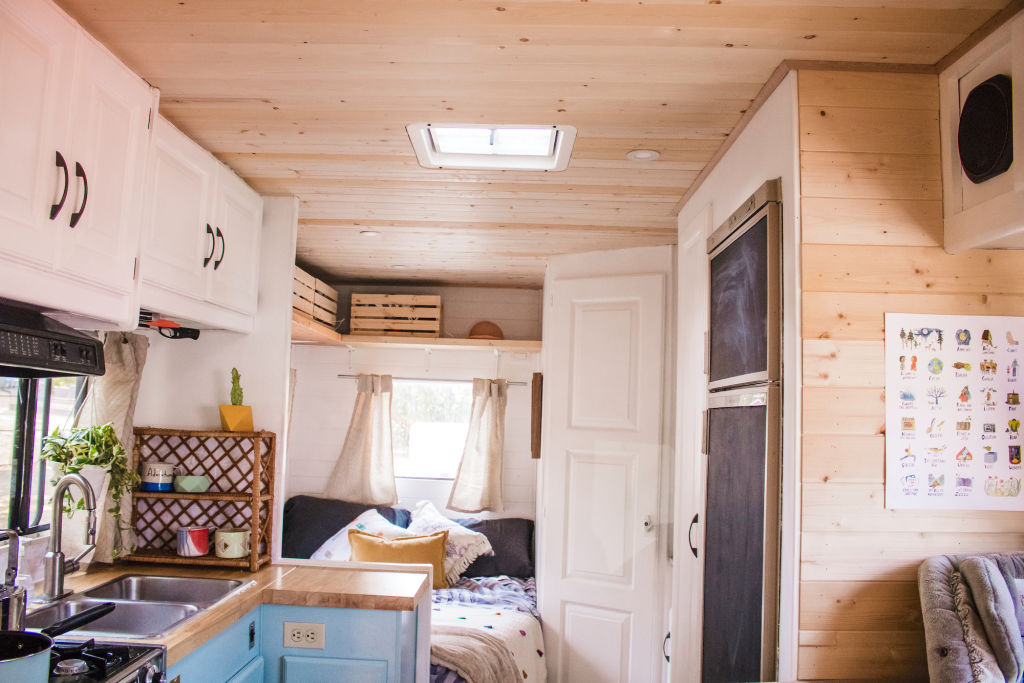
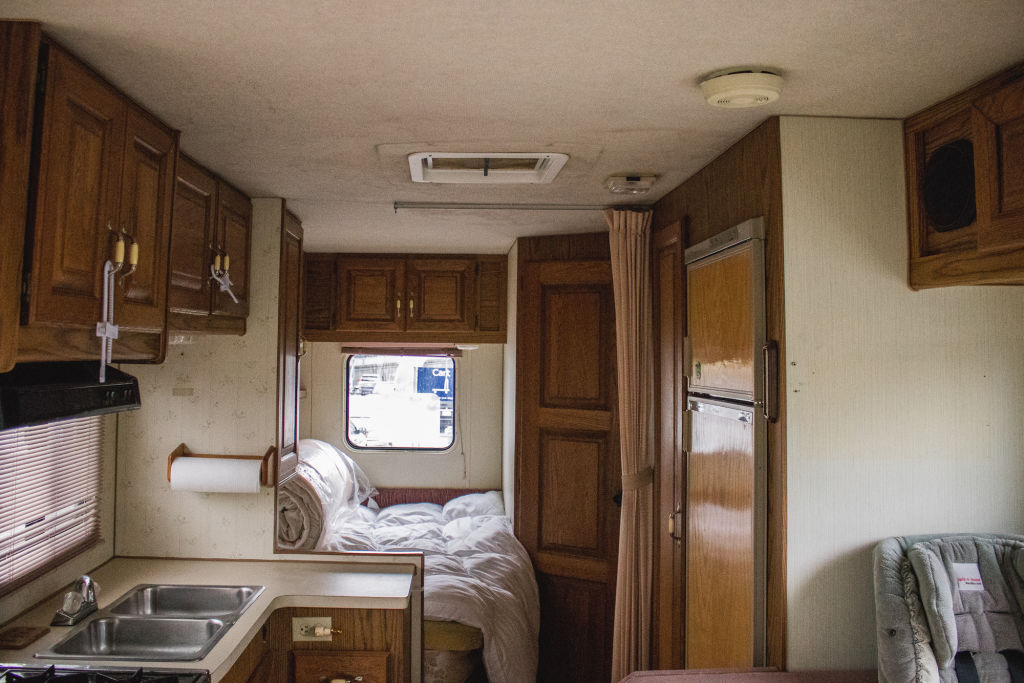
While the beauty of finding a home on wheels is apparent, both Eric and Grace acknowledge one of the hardest parts about the lifestyle is “carving out time to work”. Eric works in digital marketing, Grace is a freelance journalist and editor and the two do their best to take time from exploring to fund their travels.
“While it’s easy to get our laptops out in the van – getting solar panels so we could charge our MacBooks via an inverter was crucial – most of our work has to be done offline because it’s tricky to get WiFi in the van. We often use Starbucks or other cafes, and we use a mobile phone plan with around 20gb of data. Even this can be patchy, as it’s using cellular reception and we often stay in remote locations,” Eric says.
“We generally work most days, but this includes weekends and we’re not punching out a straight eight hours like office jobs. We also do a lot of photography work visiting beautiful locations, so that’s counted in work hours too.”
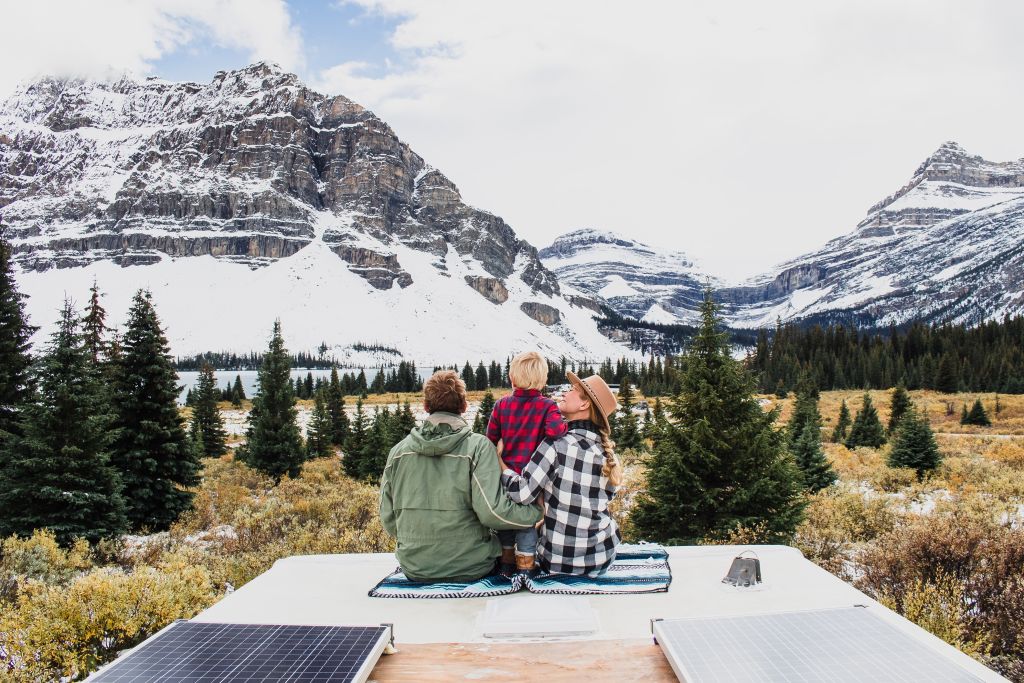
That, compounded with the constant struggle to keep their tiny home clean, are the only two downsides of living, working and traveling in a single space.
“There is a secure place for everything (essential so that things don’t break when we hit bumpy roads) but as soon as we stop, it’s amazing how quickly the van can look like a bomb has hit it. Dishes pile up quickly and the floor needs to be swept twice a day after dirt is tracked in,” Grace says.
Despite this, the couple say the “van lifestyle is even better than [they] ever could have imagined”.
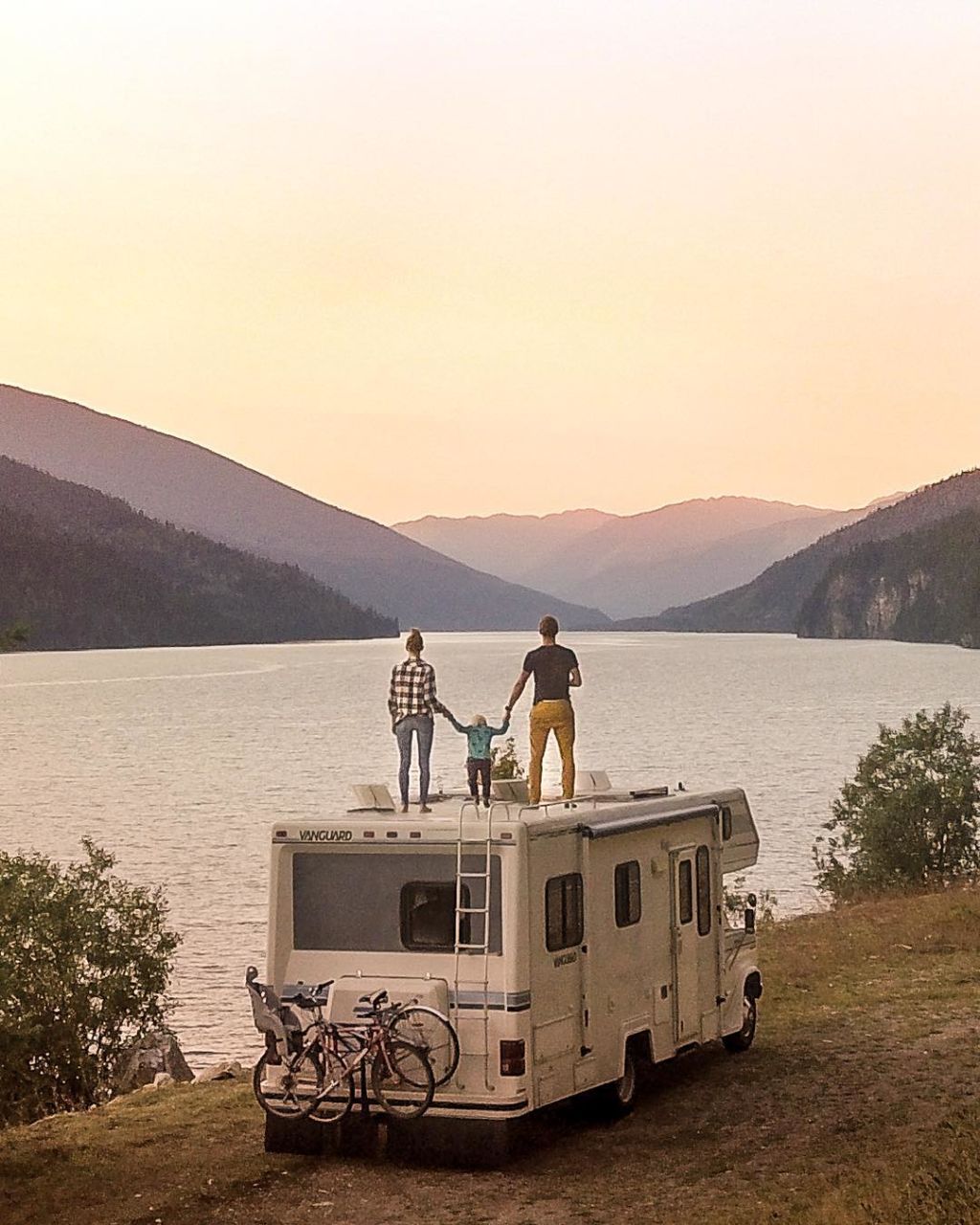
“Everywhere we go we have our home with us, which means we’re prepared for anything – whatever the weather. We love arriving somewhere late at night and waking up to an amazing view the next morning. We’ve come to adore the spontaneity of not knowing where we’ll stay each night, and letting opportunity, random chats with locals or meeting new friends guide our way. We love being able to access places off the beaten track, and stay for days on end. It’s amazing how much more you can experience in a national park or beautiful place when you don’t have to leave at nightfall,” Grace says.
Without the physical security of home, the experience has forced Eric and Grace to redefine what their white-picket fence looks like.
“Home truly is wherever the three of us are. And we feel like, through travel, we now have multiple places we call ‘home’ all around the world.”
We recommend
We thought you might like
States
Capital Cities
Capital Cities - Rentals
Popular Areas
Allhomes
More
